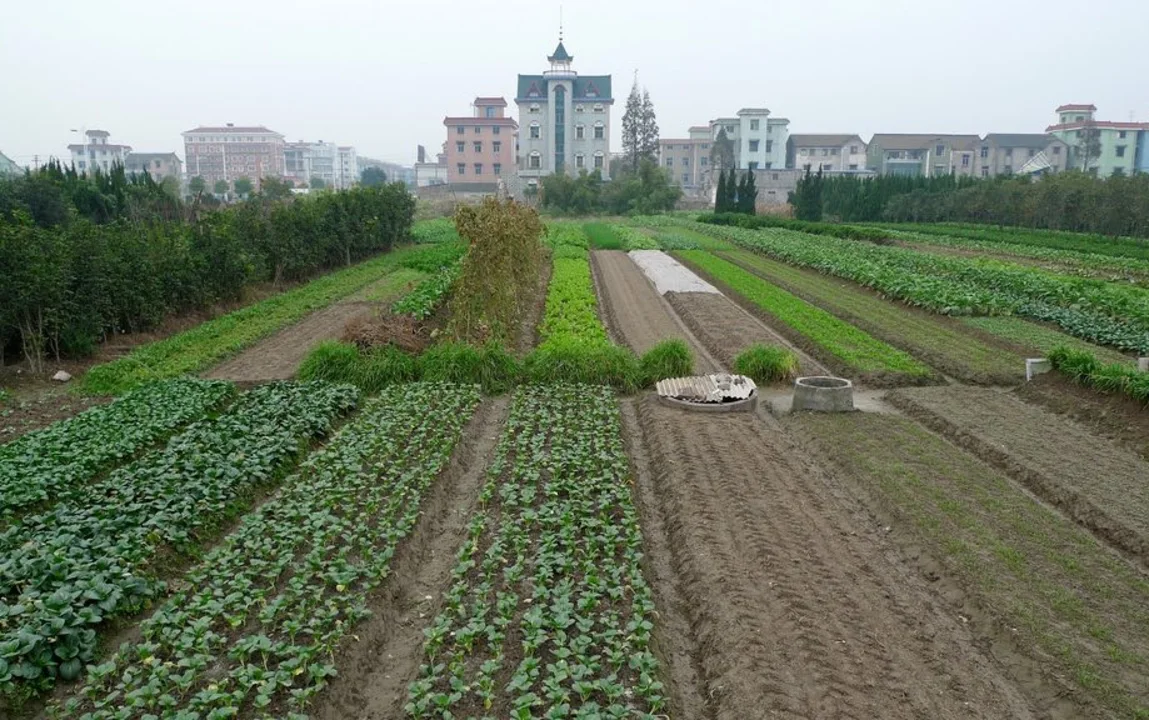Why is agriculture so important?
Feeding the World's Growing Population
One of the main reasons why agriculture is so important is because it feeds the world's growing population. Every day, more and more people are born, and they all need food to survive. With the current rate of population growth, it is estimated that by 2050, there will be around 9.7 billion people on Earth. This means that we will need to produce more food than ever before.
Agriculture plays a crucial role in ensuring that we have enough food to feed everyone. It is not just about producing enough food, but also about ensuring that the food is nutritious and of good quality. Without agriculture, we would not be able to provide for the basic needs of our ever-growing population, and this would lead to widespread hunger and malnutrition.
Supporting Economic Growth and Development
Agriculture is also important because it supports economic growth and development. In many countries, especially in developing ones, agriculture is the backbone of the economy. It provides employment opportunities for millions of people, and it contributes to the GDP of these countries. By investing in agriculture, governments can help to create jobs, stimulate economic growth, and improve the overall standard of living for their citizens.
In addition to providing employment opportunities, agriculture also plays a role in promoting trade and international relations. By exporting agricultural products, countries can increase their foreign income and strengthen their position in the global market. This, in turn, can help to improve the economic situation in these countries and make them more competitive on the international stage.
Preserving the Environment and Biodiversity
Agriculture has a significant impact on the environment and biodiversity, and this is another reason why it is so important. By practicing sustainable agricultural methods, farmers can help to preserve the environment and protect valuable ecosystems and wildlife. Sustainable agriculture involves using resources efficiently, minimizing waste, and reducing the use of harmful chemicals and pesticides. This helps to conserve soil, water, and other natural resources, and it promotes the health and well-being of both humans and animals.
In addition, agriculture plays a critical role in maintaining biodiversity. Biodiversity refers to the variety of life on Earth, and it is essential for the health of our planet. By preserving natural habitats and promoting the growth of diverse crops and livestock, agriculture can help to protect our planet's biodiversity and ensure that future generations can enjoy a rich and diverse natural world.
Contributing to Cultural Identity and Heritage
Agriculture is not just about producing food and supporting economic growth; it is also a vital part of our cultural identity and heritage. For thousands of years, humans have relied on agriculture to survive, and it has shaped the way we live, work, and interact with one another. Agricultural practices have evolved over time, and they have given rise to a rich tapestry of customs, traditions, and rituals that are an integral part of our cultural heritage.
By preserving and promoting traditional agricultural methods and practices, we can help to keep our cultural identity and heritage alive. This is especially important in an increasingly globalized world, where local customs and traditions can easily be lost or forgotten. By supporting agriculture, we are not just investing in our future; we are also celebrating and honoring our past.
Improving Health and Nutrition
Agriculture plays a critical role in improving health and nutrition. By producing a wide variety of fresh, nutritious foods, agriculture can help to promote good health and prevent disease. A healthy, balanced diet is essential for maintaining a strong immune system and preventing chronic conditions such as obesity, diabetes, and heart disease. By investing in agriculture, we can help to ensure that everyone has access to the nutritious food they need to lead a healthy, active life.
In addition to providing fresh, healthy food, agriculture also plays a role in promoting food safety. By implementing strict food safety regulations and investing in research and development, we can ensure that the food we eat is not only nutritious but also safe to consume. This is particularly important in a world where foodborne illnesses and contamination are becoming increasingly common.
Addressing Climate Change and Its Effects
Finally, agriculture is important because it plays a crucial role in addressing climate change and its effects. Climate change is one of the biggest challenges facing our planet today, and it has far-reaching consequences for agriculture and food production. As temperatures rise and weather patterns become more unpredictable, farmers must find ways to adapt and ensure that they can continue to produce enough food to feed the world's growing population.
Sustainable agriculture practices, such as agroforestry, conservation tillage, and crop rotation, can help to mitigate the effects of climate change by reducing greenhouse gas emissions and promoting the sequestration of carbon in the soil. By investing in research and development, we can also develop new technologies and strategies that will help farmers adapt to changing conditions and produce more food with fewer resources. In this way, agriculture is not only essential for our survival but also for our ability to combat climate change and its effects on our planet.
